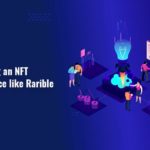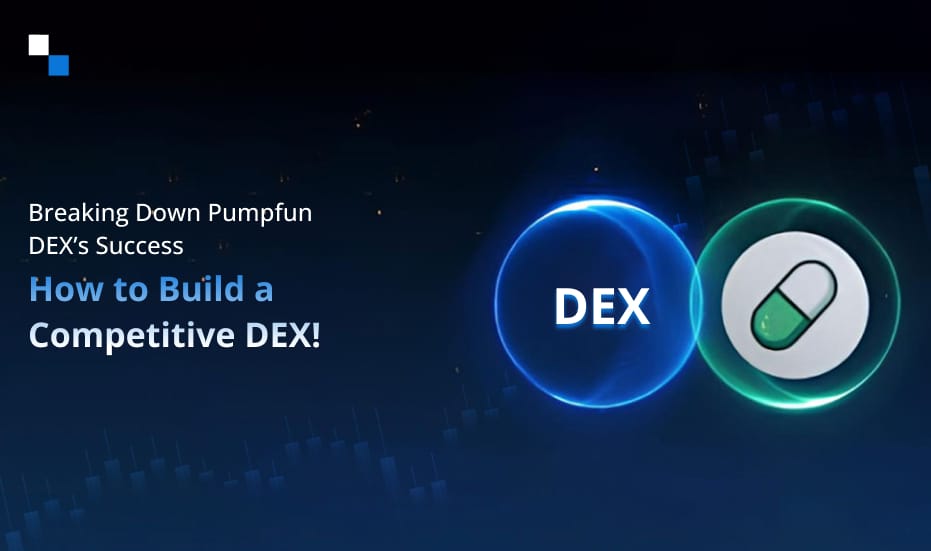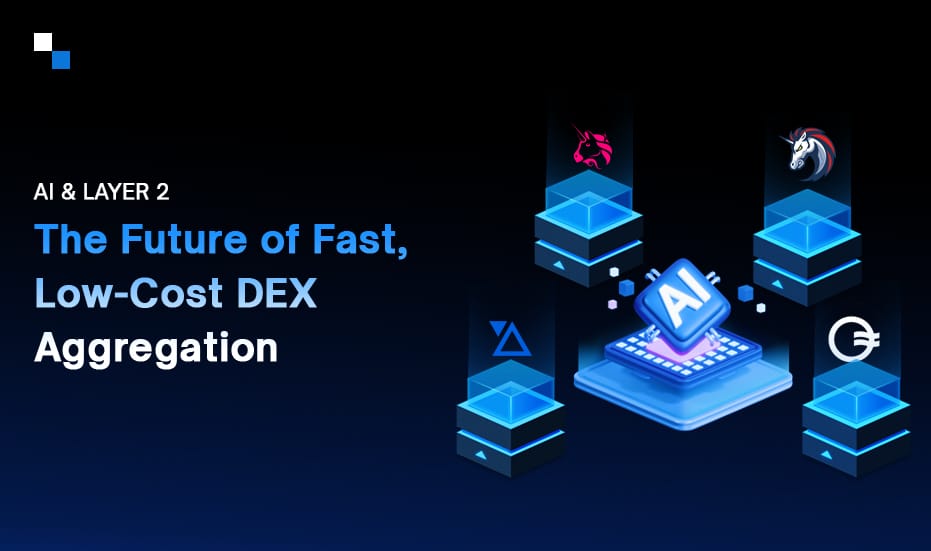
Development of a Rarible-like NFT Marketplace
October 29, 2021
Reasons to launch Coinbase-like Crypto Exchange Software
November 9, 2021A decentralized exchange (DEX) is a cryptocurrency exchange that works independently of a central authority or third party. As a result, a user maintains complete control over monies held or exchanged on DEXs, which are more secure than centralized exchanges (CEXs). Ethereum smart contracts are required to run decentralized exchanges, which are built on the Ethereum blockchain.
Centralized exchanges, on the other hand, are managed by a third party. CEXs aren’t based on the blockchain. CEXs are speedier than blockchain-based exchanges, and they can handle both fiat and crypto transactions.
DeFi Aggregator
A DeFi aggregator is a platform that combines data from many DeFi protocols into a single interface, allowing traders to make more informed decisions. Aggregators also handle other tasks like connecting liquidity pools, lowering transaction costs, and depositing funds into DeFi pools, among others. Users can pick an aggregator that meets their needs and get more out of their DeFi interactions.
The advantages of DeFi aggregators
If you want to learn how to make a DeFi aggregator, you must first learn about all of the advantages of these platforms before incorporating them into your project. DeFi DEX aggregator development is beneficial to both DeFi customers and Defi businesses.
They govern how users engage with exchanges, decentralized apps, and investment platforms, among other things. Aggregators merge various protocols into a single, readily understandable interface, resulting in a much-improved user experience. Users no longer need to open multiple tabs to keep track of data from various apps. All of them can be accessed through a single aggregator interface. Users will be able to choose the most profitable solutions on the market more efficiently due to this.
Furthermore, when orders are fulfilled at a price that is less advantageous than predicted, users of decentralized exchanges frequently suffer challenges due to significant slippage. Aggregators aid in the resolution of this problem. PlasmaFinance, for example, collects data from many protocols and allows users to see real-time pricing and trade the best DEXs.
Some developers took it a step further by aggregating liquidity from other DEXs. Anytime a trader swaps, the protocol automatically generates the best cryptocurrency prices from all DEXs to which it is connected.
Aggregators also assist services in locating customers. This is one of the most effective methods for introducing a new project while also increasing its liquidity. Aggregators take advantage of one of the most critical DeFi features – interoperability – to create a single, competitive marketplace for a wide range of users. As a result, DeFi DEX aggregator development provides product opportunities for both traders and businesses.
Develop your Own DeFi DEX Aggregator Exchange
Schedule Free DemoThe process of creating a DeFi aggregator
DeFi aggregators, like other DeFi solutions, operate based on smart contracts. Smart contracts are a fantastic approach to automate the regulation of user-platform relationships. However, I’m sure you’re aware that they might be vulnerable if they’re built without the greatest security procedures in mind. To begin creating a DeFi aggregator, you’ll need the technical assistance of an expert blockchain development team that is familiar with all of the aspects of working with smart contracts.
Platform security is essential for gaining potential consumers’ trust. Over the last year, we’ve heard reports about hacker assaults on DeFi services, the majority of which were due to contract flaws. Thus, never overlook security while DeFi development
.
Here are five significant steps to the construction of a DeFi aggregator:
1. Discovering your Project
This step is required for a thorough examination of the project’s goals and requirements to develop a product that fulfills the needs and expectations of end-users. During the discovery phase, a customer and a development team collaborate to define the scope of work, budget, and timelines and produce a thorough plan for DeFi DEX aggregator development.
2. Designing UI/UX
DeFi aggregators were created to improve the user experience by offering a single interface for interacting with several protocols. To live up to this assertion, however, integrating many protocols into one solution is insufficient. It would help if you built an interface that makes it simple for consumers to engage with DeFi and take advantage of all of the aggregator’s features. As a result, laying down functionality that turns out to be complicated and confusing is pointless. This is where a skilled UX/UI design team can assist you in incorporating features into a user-friendly interface that your users will enjoy.
3. Smart Contract Development
The majority of the backend of DeFi applications is made up of smart contracts. We’ve already discussed how critical it is to hire a seasoned development team to produce trustworthy, intelligent assurances. Developers will construct and deploy all of the essential algorithms for your platform’s operation, as well as the necessary integrations with other DeFi protocols, at this point.
4. Front-end programming
The front-end of the DeFi aggregator platform is highly significant because it is the part that users engage with directly. Front-end developers ensure that all interface elements are correctly positioned and that they perform their roles, allowing users to interact with the platform more successfully. Selecting the appropriate frameworks and libraries aids in the development of robust and dependable applications.
5. Testing
Testing is critical for DeFi development. Tests ensure that all platform features function as intended as well as identify and prevent system vulnerabilities. When it comes to smart contracts, testing and audits are essential. To stay competitive in the market, start collecting feedback, offering new features, and enhancing your DeFi aggregator whenever you’re sure it’s ready to go live. Working with an experienced development team, you’ll be able to effortlessly navigate all of the procedures involved in creating a DeFi aggregator, resulting in a dependable and secure software solution.
Dex Aggregator clone script
A White label Clone script is a custom-made script that is a ready-to-use script that can be customized to meet your specific requirements. In terms of features and functionality, it is identical to the popularly known original decentralized exchange.
Conclusion
Many people possess Bitcoin and other digital assets in their portfolios but have yet to use them. DeFi aggregators allow newer users to create successful strategies without understanding the complexities of DeFi trading or the coding required by many sites. Users may rest assured that when they use aggregators, they obtain the most efficient method for their trades.
Aggregators are crucial for centralizing your DeFi activities, from DEXs to liquidity mining algorithms and everything in between. As our financial world becomes more decentralized, the demand for user-friendly applications places aggregators as an essential tool in this new economic landscape.
If you are planning for DeFi DEX aggregator development, Antier Solutions can help. We leverage our blockchain experience, deep domain knowledge, and technical prowess to deliver world-class products that align with your business requirements.
Connect with our subject matter experts to share your business needs.



